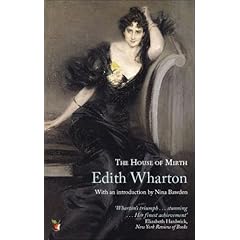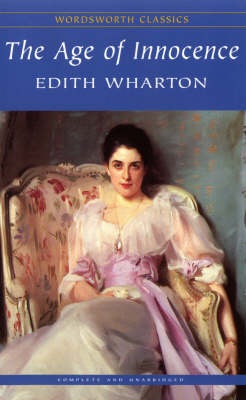 Edith Wharton’s House of Mirth is a novel about society in the twentieth century, focusing on the role of upper-class women. Though the modern reader may not be sympathetic to Lily Bart’s plight in life, Lily is a victim and prisoner of her era as well as money and social expectations. In this novel, Wharton illustrates a variety of women; the unmarried philanthropist Gerty Farish, the adulteress Bertha Dorset, the widow Julia Peniston, the divorcée Carry Fisher. But none of these are women that Lily Bart can respect as a role model. With so few options, Lily’s course in life is already dictated for her; “she was so evidently the victim of the civilization which had produced her, that the links of her bracelets seemed like manacles chaining her to fate” (Wharton 7).
Edith Wharton’s House of Mirth is a novel about society in the twentieth century, focusing on the role of upper-class women. Though the modern reader may not be sympathetic to Lily Bart’s plight in life, Lily is a victim and prisoner of her era as well as money and social expectations. In this novel, Wharton illustrates a variety of women; the unmarried philanthropist Gerty Farish, the adulteress Bertha Dorset, the widow Julia Peniston, the divorcée Carry Fisher. But none of these are women that Lily Bart can respect as a role model. With so few options, Lily’s course in life is already dictated for her; “she was so evidently the victim of the civilization which had produced her, that the links of her bracelets seemed like manacles chaining her to fate” (Wharton 7).From an early age, Lily has been groomed, probably like her mother before her, to marry a wealthy man. Before her death, Mrs. Bart watched over Lily’s beauty and “studied it with a kind of passion, as though it was some weapon she had slowly fashioned for her vengeance” (Wharton 34). Now Lily is 29 years old and even though she has had numerous chances at marriage she has somehow missed her opportunity. While talking to her long-time friend Lawrence Seldon she admits, “’I’ve been about too long – people are getting tired of me; they are beginning to say I ought to marry’….[ Selden] returned amicably, ‘isn’t marriage your vocation? Isn’t it what you were brought up for?’” (Wharton 9). Though it is her “vocation,” marriage is not something that she necessarily wants. She is forced to chase potential husbands by “organizing methods of attack” (Wharton 17) behind a a gauze of beauty. Though Lily is a jeune fille à marier she does not have a mother or chaperone to guide her.
In “Book 1,” Lily spots and chases the wealthy bachelor Percy Gryce. Lily is smart enough to know that if she wants to keep up her present way of living, she needs to marry rich. Her only other option is to stay single, but the Gerty Farish is the only example of a woman who bucks tradition in this way, and Lily thinks that she is unstylish and “her cook does the washing and the food tastes of soap” (Wharton 7). Her only alternative is to try to secure a husband for herself. She knows that her marriage will not be for love, but it instead will be a marriage of convenience to insure her social standing and income. To Lily, marrying Gryce “was a hateful fate- but how escape from it?” (Wharton 25). Sadly when she misses out on this match, she becomes indebted to another man when she tries to secure financial stability in a different way.
When Lily asks Gus Trenor for financial help, she unknowingly forms a very dangerous relationship with a married man. Lily accidently indebts herself to Trenor after accepting money from him and creates for herself another prison. She is forced to humor Trenor and she puts herself in some very questionable situations that could hurt her reputation. When Trenor manipulates and lies to her in order to get her alone in his house, it very suddenly and horrifyingly becomes obvious how much control he has. When Lily finally gets away from Trenor, who is literally imprisoning her in his house, “she [feels] a mad throb of liberation, intoxicating as the prisoner’s first draught of free air” (Wharton 147).
The novel House of Mirth is full of vocabulary and situations that keep reinforcing a theme of imprisonment. This imprisonment seems to extend to all of the women in the novel in one form or another, but it especially dictates the life of Lily Bart. Lily is imprisoned by the expectations of her family, friends, and society, but almost more importantly by money.



